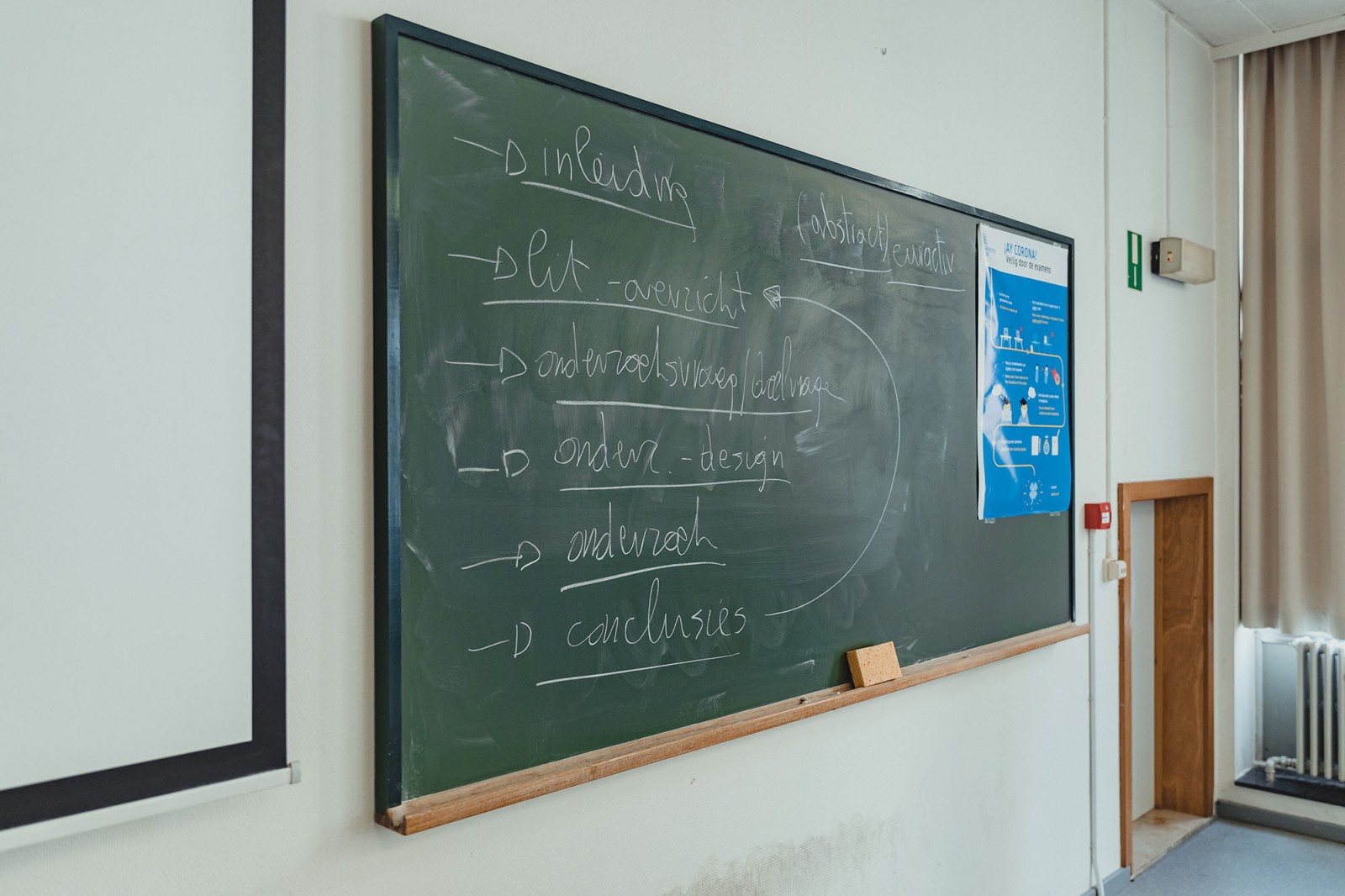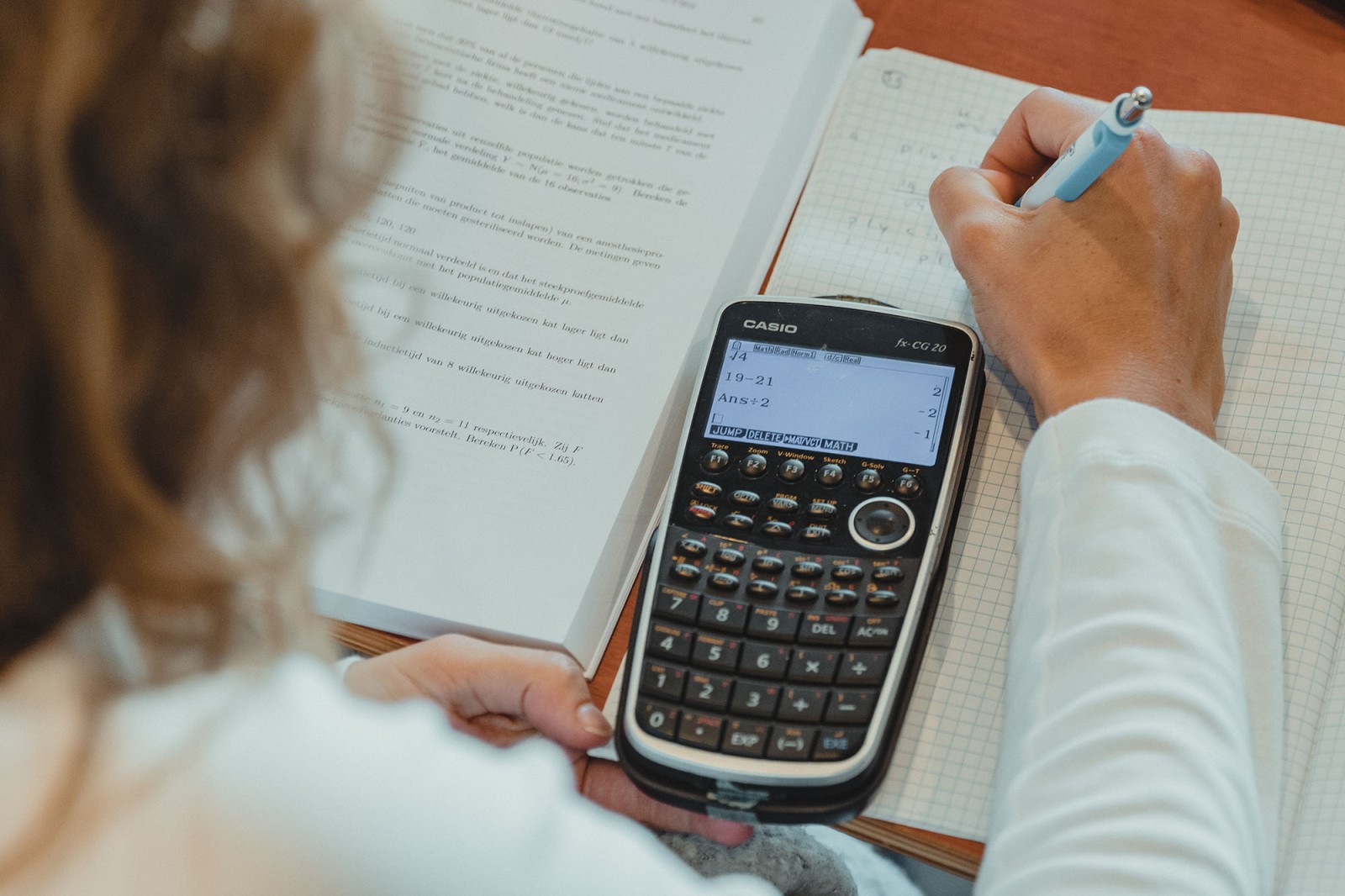Almost all students experience stress during the exams. Feeling tense or uncertain is perfectly normal. We asked some professors for tips & tricks to get through the exam period.
Professor Evelien Opdecam is coordinator of the educational master at the faculty of Economics and Business Administration. She is also responsible for the study coaches within that faculty.
"Stay calm, just try to make the best of it. Did you have a not so good exam? Try to let it go and focus on your next exam. Focus only on things you have an impact on.
Know where to go and be prepared
"Do everything possible to avoid stress on the day of your exam. Don't know where the exam venue is? Go and check out the building where your exam will take place a few days earlier. Do you have help tools for a subject, such as a codex, a formulary? Use them sufficiently while studying in order that everything goes smoothly during the exam. Also be sure to arrive on time, preferably 10 minutes early. Do you have a pre-exam ritual? Just do it."

Work as efficiently as possible
"Don't make a mess of your exam paper. Mark your key words so that the professor can clearly see what you're trying to say. Quickly write down the things that you can't remember very well on your notepad at the start of the exam. Cover the answer options at an exam with multiple choice questions. The alternatives are only there to distract you."
Keep an eye on time
"As for the exams in the first bachelor, there is a good chance that the lecturer will try to include almost all chapters in the exam questions. This means that if you master a certain section less well, it's not an absolute disaster. If you cannot answer a question correctly, do not focus on it. Move on to the next one."

Professor Nicolas Dirix, Department of Experimental Psychology, provides an overview of a number of important findings from scientific psychology in the introductory course General Psychology. He also likes to make the concrete translation from his course material to how you yourself can use your memory processes in a positive way.
Make your own exam questions
"Most study tips cover learning how to study. But during an exam you'll also need to be able to recall the information you have studied. You can train that too. Studies tell that practicing to actively recall information actually works better than studying the same information several times. A tip: come up with your own exam questions, quiz yourself or form a study group and quiz each other."
Allow yourself the freedom to relax
"Plan breaks too and work with rewards. For instance, allow yourself to watch one episode of your favourite series. Do not watch more or less episodes though. When you tell yourself you are going to reward yourself, do so. This will help motivate you to stick to it for longer."

Prof John Lievens of the Faculty of Political and Social Sciences has been teaching Statistics for more than 20 years.
Overcome your fear, you're not alone
With every exam I ever took myself, I made the mental consideration whether I would nauseously walk out or I would stay seated and continue the exam. The stress at the start of an exam is really high. Once you start, it passes. Therefore, from my personal experience, I would say: overcome your fear, you are not alone in that moment either. Probably three-quarters of the students around you feel the same way. Let it happen, don't panic and start your exam calmly.
Dare to ask for help
"Still anxious during your exam? Breathe calmly and relax. It's okay, don't rush. It will be fine. Take a moment to recover. Try to shift your attention. Keep your attention on what you see and not on what you feel. Look around and name within yourself 5 things you see. Are you really struggling? Be sure to signal the exam supervisors. Communicate that you are not feeling well and ask if you can get some fresh air. Going outside can help."
Are you a Ghent University student and in need of more tips or counselling?
- For practical questions about your exam: contact your Faculty Student Administration.
- Campus maps can help you prepare, so you know exactly where to go the day of the exam.
- Do you have questions about your study approach or are you experiencing so much stress that it is getting in your way? You can always contact your monitoraat or one of the student psychologists.
- Take a look at the webpage Wellbeing at Ghent University if you need more help during this period.
Read also
First aid for exam stress: professors share their study tips
The end of the year does not only ring in the holidays, but also days full of learning ahead of the January exams. Whether it's your very first university exams ever or not, it's always nerve-wracking. We asked some professors what study tips they would like to give you ahead of the examination period.
Read also
Professor shares 14 tips to successfully get through the exams
Professor Martin Valcke is facing his very last exam period after a career spanning many years. As an expert, we asked him for the ultimate tips for you to get through the exam period successfully.
5 tips for writing a top thesis
Writing a bachelor or master's thesis is quite a challenge. Medicine students Emma Coene and Frédéric Claerhoudt are experts by experience and are happy to share some tips to make your thesis a success too.
The second semester has started: are you ready?
The first semester and examination period are over. Time to start the second part of the academic year with a fresh head and perhaps some ambitious plans or new intentions. Are you ready? These students are.
These students tell what it's really like in higher education
Motivating young people in secondary schools to continue studying. That, in a nutshell, is the mission of the students of role model project. An award-winning formula that recently won the city of Ghent's Jong & Wijs award. We sought out a few role models to hear their stories.




